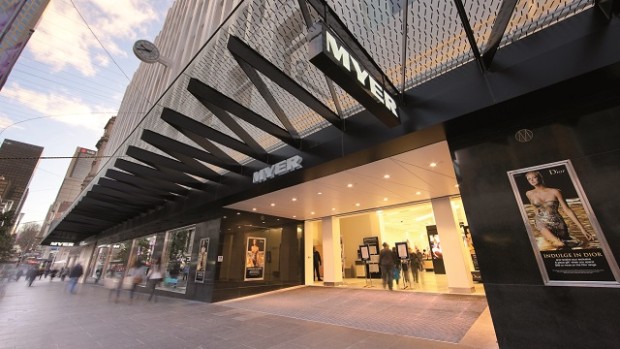

Myer has joined a long list of retailers closing stores and standing down staff in the face of the public health measures being implemented to contain COVID-19 in Australia.
On Friday evening, the department store announced the temporary closure of all Myer stores from close of business on Sunday, March 29, for an initial period of four weeks until April 27.
Approximately 10,000 staff across the store network and head office will be stood down without pay during that time. Full-time and part-time staff will have access to annual leave and long-service entitlements in addition to government assistance.
A small group of business-critical roles will stay on at 80 per cent of their normal salaries to undertake essential work and support the online business, which will continue to trade.
“The decision to temporarily close all Myer stores and stand down so many loyal and dedicated team members is one of the toughest decisions this Company has faced in its 120 years of operation,” John King, Myer’s CEO, said in a statement.
“Our focus must remain on operating our business in a manner that protects the health and wellbeing of our customers and team members, whilst supporting the government, and the communities in which we operate, in limiting the spread of COVID-19.”
Thousands of stores gone dark
The department store is just the latest major retailer to voluntarily shutter stores, despite shopping centres currently being allowed to remain open.
Noni B owner Mosaic brands closed over 1300 stores and stood down 6800 staff earlier this week, and Premier Investments, the company behind Smiggle, Peter Alexander, Just Jeans and other brands, Lovisa, Kathmandu and many others quickly followed suit.
CEOs of these businesses say they had no choice but to close. Foot traffic in shopping centres last week was down 46 per cent year on year, according to ShopperTrak, and sales are down between 40-60 per cent, according to a recent survey of the Australian Retailers Association’s members.
But the Morrison Government has been reluctant to impose a total shutdown, saying that it would spell disaster for business owners and cost people their livelihood.
Only pubs, cinemas, casinos and other entertainment venues, beauty therapy and waxing businesses and tattoo and massage parlours have been forced to close, and restaurants and cafes have been restricted to takeaway and home delivery, though all indoor venues have been told to reduce their capacity to 4sqm per person.
CEOs call for shutdown
At a press conference on Friday afternoon, Prime Minister Scott Morrison indicated states were likely to trigger broader shutdowns before the Federal Government.
NSW and Victoria are reportedly on the brink of stage 3 shutdowns, which would force all non-essential businesses – everything except supermarkets, pharmacies, petrol stations and health facilities, for instance – to close.
Meanwhile, some business leaders are beginning to express frustration at the Federal Government’s slow response.
“I’m really angry the government hasn’t done something,” Justin Levis, Cue’s executive director, told The Australian Financial Review on Friday.
Cue is closing stores across Australia on Saturday, despite the fact that retailers could face legal issues if they close stores and stand down staff without being required to do so by the Government, according to Levis.
Rent still an isssue
Several retailers have said they won’t pay landlords while their stores are closed.
On Friday, the Prime Minister said the national cabinet was discussing a “hibernation” option for businesses, which would address the problem of accumulating rents and other debts during a shutdown, but he didn’t provide any details.
Gerard Dwyer, national secretary of the SDA, said the closure of Myer stores reflects the urgent need for a retail rescue package, including a wage subsidy for retail workers, the underwriting of a line of credit for retailers and some form of rent relief.
“How many more businesses need to shut up shop before the government acts to ensure there is an economy to speak of once the COVID-19 emergency peaks and passes,” Dwyer asked.

